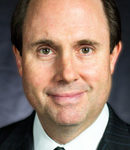ABILENE—A few simple exercises can help senior adults maintain the independence they desire, a Hardin-Simmons University professor contends.
But that call to exercise comes with a caveat.
“Anybody who has not been exercising should always check with their doctor to make sure their risk factors are controlled, because we all have risk factors, and aging is a risk factor in itself,” said Janelle O’Connell, professor and department head in physical therapy at HSU.
She is one of 55 physical therapists in the United States certified as an exercise expert for senior adults.
|
Regular exercise and good nutrition can help most senior adults maintain their independence longer, according to Janelle O’Connell, a professor and department head in physical therapy at Hardin-Simmons University.
|
Conditions such as hypertension, coronary artery disease or diabetes are no reason to abandon exercise, but a doctor’s advice should be sought, she said.
“There really is no reason why 98 percent of the people in this country cannot exercise except for the fact that we make a lot of excuses,” O’Connell said.
“With that in mind, the first thing I would recommend is they get a buddy, because most people are more likely to exercise if they have someone to keep them ac-countable.”
Senior adults need exercise, she emphasized, noting a study that says 70 percent of people over 65 are considered independent, but one-third of them cannot walk one lap around a track; one-third cannot kneel, crouch or stoop; 20 percent cannot climb 10 steps without stopping; and 16 to 20 percent cannot lift 10 pounds.
“I think it’s too easy to make excuses like ‘I’m too old.’ We’re never too old. Only five percent of individuals over age of 75 are what we actually consider fit, and that’s because they maintain a high level of fitness. They exercise on a regular basis,” O’Connell said.
Sign up for our weekly edition and get all our headlines in your inbox on Thursdays
Many cite arthritis as their reason for not exercising, she noted.
“Actually, all the research suggests that with arthritis, any kind of exercise is actually better for it. I personally can speak to that. I have arthritis in my knees, and my knees feel much better when I exercise on a regular basis,” she insisted.
| {youtube}8T8j0jIiIVE&hl=en&fs=1&rel=0{/youtube} |
|
Janelle O’Connell says you're never too old to exercise.
|
Aerobic exercise should be done five to seven times a week, O’Connell suggested. While it may be too hard at first, the goal should be eventually to exercise 40 minutes each time.
Rather than walking every day, most people prefer to incorporate time on a stationary bicycle or swimming for a change of pace, she said.
O’Connell emphasized the importance of balance training for senior adults.
“There is an increased risk of falls as we age and mostly because we have changes within our musculoskeletal system and our neuromuscular system that cause our coordination to fail a little bit. And if we don’t actually practice and do that activity, we can’t get any better at it,” she pointed out.
“Balance exercise training is very important, as we know that when people fall, they may break a hip. Fifty percent of people who break a hip become dependent within the first year—that is, they never regain their total function again.”
Core stability to strengthen the muscles from the rib cage to pelvis also becomes increasingly important as people age, she added.
Generally, exercise is more effective at maintaining health than as a weight-loss measure, she suggested.
“Especially for seniors, I really recommend the aerobic activities—the walking, the swimming, the cycling—more for the balance, more for the coordination, more for the functional lifestyle issues so they can maintain independence in their home,” O’Connell said.
“Most seniors will tell you they do not want to go into a nursing home or into assisted living. They want to be independent, and the best way to do that is to do physical activity every day.”
Strength training, using canned goods or sand in milk cartons, also can be valuable to maintaining independence, she suggested.
“As we age, a huge problem is that we lose muscle mass. Men lose it much quicker than women. As we lose muscle mass, that’s when we become frail—we can’t lift things,” she said.
O’Connell also stressed the importance of a good diet heavy on fruits, vegetables and whole grains. “And put away the sugary stuff. Our bodies don’t need that.”














We seek to connect God’s story and God’s people around the world. To learn more about God’s story, click here.
Send comments and feedback to Eric Black, our editor. For comments to be published, please specify “letter to the editor.” Maximum length for publication is 300 words.